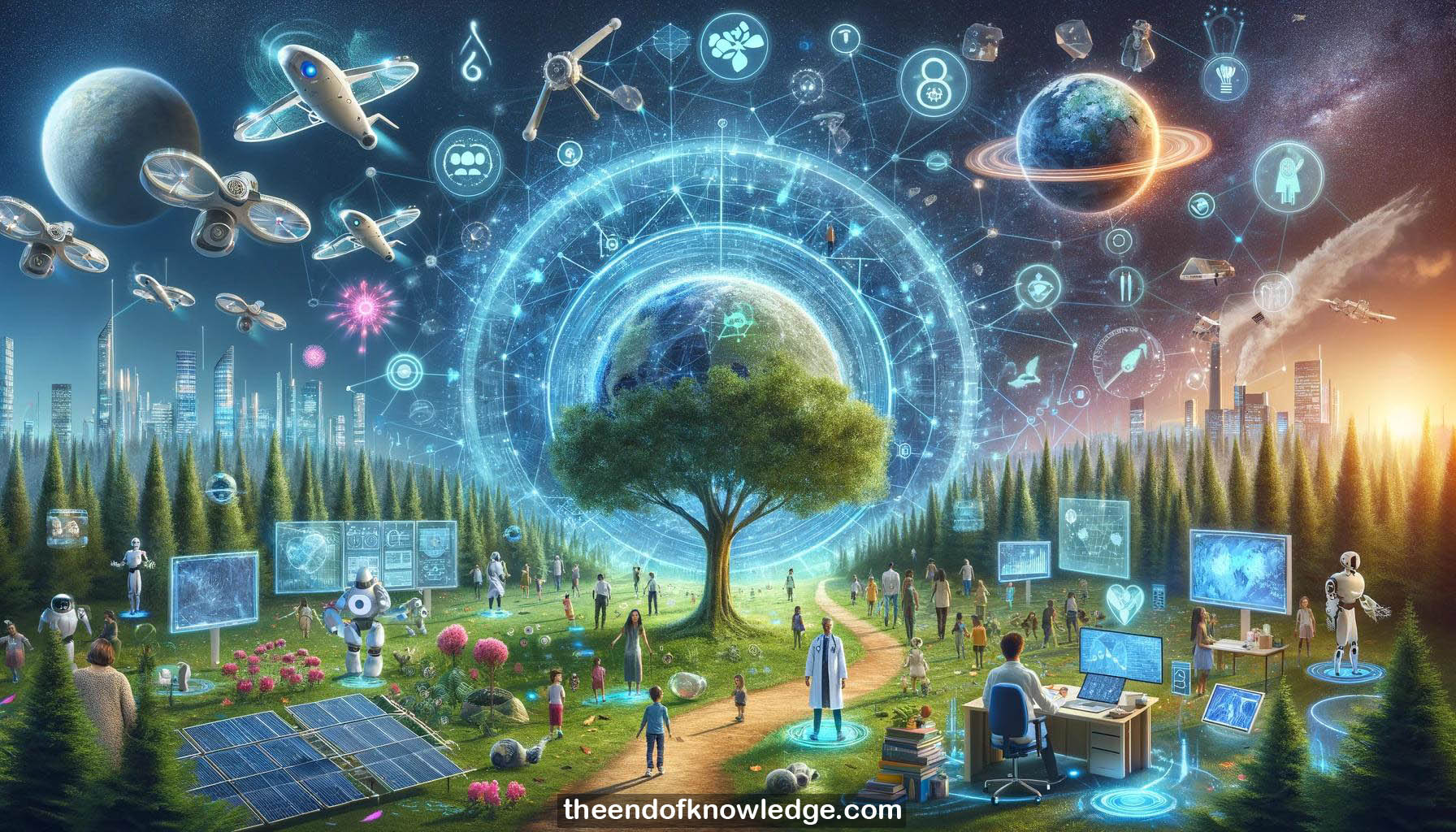 >
>
Concept Graph & Resume using Claude 3 Opus | Chat GPT4o | Llama 3:
Resume:
1.- Introduction of Panel Speakers Distinguished speakers include Wendell Wallach, Gary Marcus, Charisma Muthukumar, and Joanna Batstone, discussing AI’s impact on society and ethics.
2.- Empathy in AI Emphasizing the need to integrate empathy into AI systems to enhance their application in society, making technology more humane.
3.- AI and Cognitive Science AI development benefits from insights across disciplines like psychology and linguistics, aiming to improve AI’s understanding of human cognition.
4.- Ethics in AI The importance of addressing ethical considerations in AI deployment, focusing on governance and equitable development to avoid inequality.
5.- Opportunities in AI AI’s potential to revolutionize health, climate sustainability, and overall human well-being, emphasizing ethical implementation.
6.- Youth Involvement in AI Highlighting the need for youth engagement in AI development and education, integrating AI into school curricula to bridge knowledge gaps.
7.- AI’s Risks and Opportunities Balancing AI’s benefits in productivity and innovation with the risks of misinformation and ethical concerns in automated systems.
8.- Digital Literacy and AI Education Advocating for AI literacy starting in schools to prepare future generations for a technology-driven world, ensuring inclusive education.
9.- Global AI Governance The UN’s role in establishing global AI governance, creating frameworks that guide ethical AI development and application.
10.- The Role of the UN Utilizing the UN’s convening power to bring together stakeholders from governments, industry, and civil society for collaborative AI governance.
11.- Building Trust in AI Developing AI technologies that are trustworthy and reliable to gain public trust, essential for widespread adoption and ethical use.
12.- AI for Sustainable Development Goals (SDGs) AI’s potential to advance SDGs, providing solutions in health, agriculture, and climate change while addressing the digital divide.
13.- Collaboration Across Sectors Promoting cross-sector collaboration between governments, tech companies, and academia to scale AI solutions globally.
14.- Digital Divide Concerns Addressing the digital divide exacerbated by AI, ensuring equitable access to technology and its benefits across all nations.
15.- AI and Structural Inequality Recognizing that AI could worsen structural inequalities if not managed properly, emphasizing the need for inclusive policies.
16.- Frameworks for Ethical AI Establishing comprehensive frameworks that guide the ethical deployment of AI, mitigating risks and enhancing benefits.
17.- Engagement of Scientists in AI Policy Ensuring that scientists and ethicists are integral to AI policy-making to balance innovation with ethical considerations.
18.- Impact of Generative AI Discussing the rapid adoption of generative AI technologies and their implications on society, including ethical violations.
19.- Global Cooperation in AI Necessity for international cooperation in AI governance, with the UN leading efforts to align AI development with global values.
20.- AI’s Role in Climate Change AI’s application in predicting and mitigating the impacts of climate change, aiding in sustainable environmental management.
21.- AI in Healthcare AI’s transformative role in healthcare, from diagnostics to treatment, highlighting ethical implications in medical AI.
22.- AI Literacy for All Promoting AI literacy initiatives to ensure all demographics can understand and engage with AI technologies effectively.
23.- Ethical AI Development Encouraging ethical AI development through regulation and corporate responsibility, ensuring technology serves all of humanity.
24.- Addressing AI Misinformation Combating the spread of misinformation facilitated by AI, particularly in critical areas like elections and markets.
25.- AI’s Long-Term Impact Exploring AI’s long-term impact on job markets, societal structures, and global economies, preparing for future challenges.
26.- Intergenerational AI Dialogues Fostering intergenerational dialogues to ensure diverse perspectives in AI development and policy-making.
27.- Philanthropy and AI Leveraging philanthropy to support ethical AI initiatives, ensuring technology benefits society broadly and equitably.
28.- AI and Global South Addressing the specific needs and challenges of the Global South in AI development, promoting inclusivity and access.
29.- Vision for AI’s Future Developing a shared global vision for AI that prioritizes ethical standards and equitable access, guiding future developments.
30.- AI Governance Structures Implementing robust governance structures at both national and international levels to ensure responsible AI deployment.
Knowledge Vault built byDavid Vivancos 2024